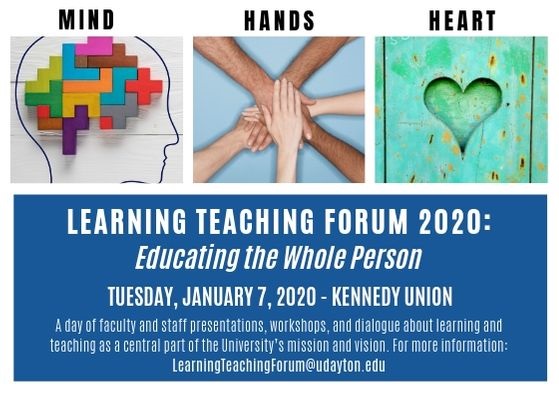The Modern Approach to Engage College Students in a Mentorship Program
About the Presenter(s)
Peter J. Titlebaum, professor, Department of Health and Sport Science Maria Horrigan, graduate assistant, Department of Health and Sport Science
Location
Vocation, Advising, and Mentorship
Start Date
7-1-2020 10:30 AM
Abstract/Description
Kennedy Union 207
This study addresses the mentorship relationship. Research exists on the benefits gained from a mentorship program. However, there is minimal literature examining the depth and development of the relationship that forms throughout the mentorship process. This pilot study investigated affiliates of UD in various capacities. UD Alumni graduates of the Sport Management program drafted an undergraduate senior in the Sport Management program, while those seniors also picked a student in a second-year class from the same program. The theory behind these pairings was to offer insights and knowledge the mentees do not currently have. Through a combination of structured surveys, assignments and mentor/mentee communication guidelines, the mentees got to know their mentor on a deeper level and learned how to build bridges to maintain the relationship beyond the first stage. The mentees recognized the expertise they have to offer in the relationship, ultimately balancing the contributions of each participant.
Goals for Attendees
The goal for attendees is to gain a better understanding of the benefits a mentorship program can provide by encouraging ongoing relationships. The perspectives of former and current students are shared to empower future mentorship programs to incorporate similar measurements of growth and development.
The Modern Approach to Engage College Students in a Mentorship Program
Vocation, Advising, and Mentorship
Kennedy Union 207
This study addresses the mentorship relationship. Research exists on the benefits gained from a mentorship program. However, there is minimal literature examining the depth and development of the relationship that forms throughout the mentorship process. This pilot study investigated affiliates of UD in various capacities. UD Alumni graduates of the Sport Management program drafted an undergraduate senior in the Sport Management program, while those seniors also picked a student in a second-year class from the same program. The theory behind these pairings was to offer insights and knowledge the mentees do not currently have. Through a combination of structured surveys, assignments and mentor/mentee communication guidelines, the mentees got to know their mentor on a deeper level and learned how to build bridges to maintain the relationship beyond the first stage. The mentees recognized the expertise they have to offer in the relationship, ultimately balancing the contributions of each participant.



